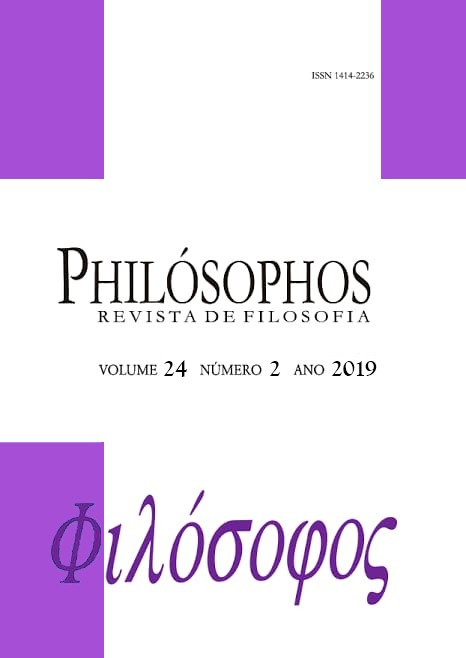Is God a Phenomenon? A dialogue between Kierkegaard and Jean-Luc Marion
DOI:
https://doi.org/10.5216/phi.v24i2.47183Palabras clave:
Paradox, Saturated phenomenon, freedom, Excess.Resumen
The present article analyses critically the paradox of phenomenon claimed by Danish Philosopher Kierkegaard and Marion’s new concept named saturated phenomenon. While the concept of God, by definition, must surpass the realm of empiricism, perhaps the something may shed light over what God must be: Excess. However, Marion developed a new concept of phenomenon that not only occupies the immanence world, but also goes beyond. It is called saturated phenomenon. In order to address the question one might understand the limit of the givenness and then what does it mean saturated givenness. We probably all have had the sense of being overwhelmed by something and this can lead toward a sense of torpor or numbness. In the other hand, Kierkegaard affirms that God is so different than a human being, so totally other that we may think we’re right in demanding God make himself understood and be reasonable towards us. Kierkegaard upholds that we’re always dealing with God in the wrong way. I will argue that Marion, however, following phenomenological footsteps indicates a new path toward how to address God properly.
Key words: Paradox; Saturated phenomenon; freedom; Excess.
Descargas
Descargas
Publicado
Cómo citar
Número
Sección
Licencia
1. Proposta de Política para Periódicos de Acesso Livre
Autores que publicam nesta revista concordam com os seguintes termos:
- Autores mantém os direitos autorais e concedem à revista o direito de primeira publicação, sendo o trabalho simultaneamente licenciado sob a Creative Commons Attribution License o que permite o compartilhamento do trabalho com reconhecimento da autoria do trabalho e publicação inicial nesta revista.
- Autores têm autorização para assumir contratos adicionais separadamente, para distribuição não-exclusiva da versão do trabalho publicada nesta revista (ex.: publicar em repositório institucional ou como capítulo de livro), com reconhecimento de autoria e publicação inicial nesta revista.
- Autores têm permissão e são estimulados a publicar e distribuir seu trabalho online (ex.: em repositórios institucionais ou na sua página pessoal) a qualquer ponto antes ou durante o processo editorial, já que isso pode gerar alterações produtivas, bem como aumentar o impacto e a citação do trabalho publicado (Veja O Efeito do Acesso Livre).














